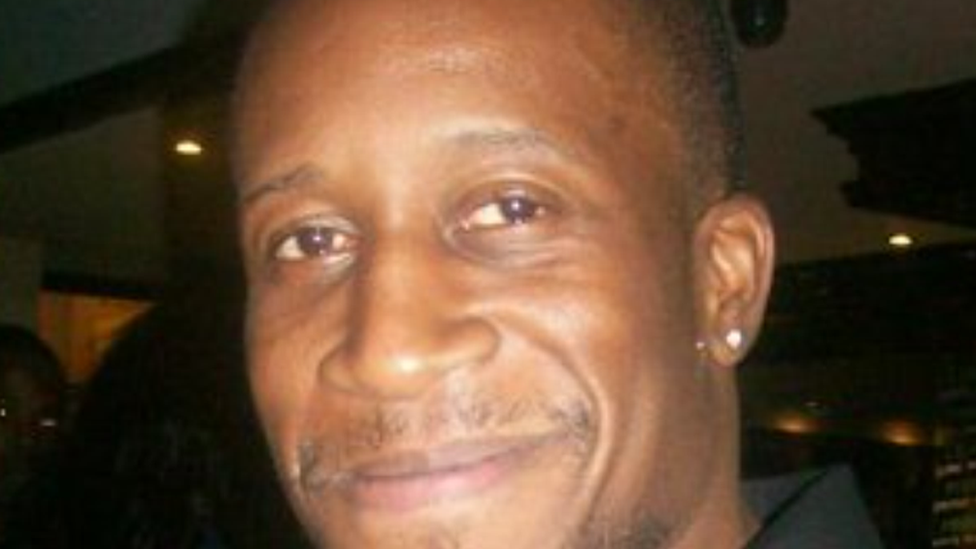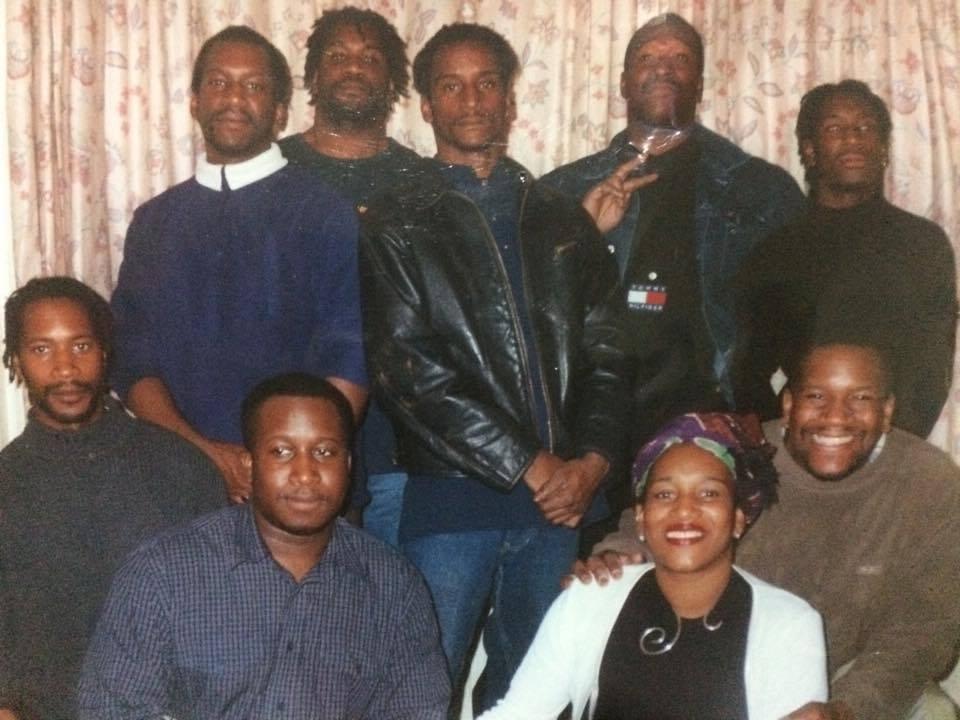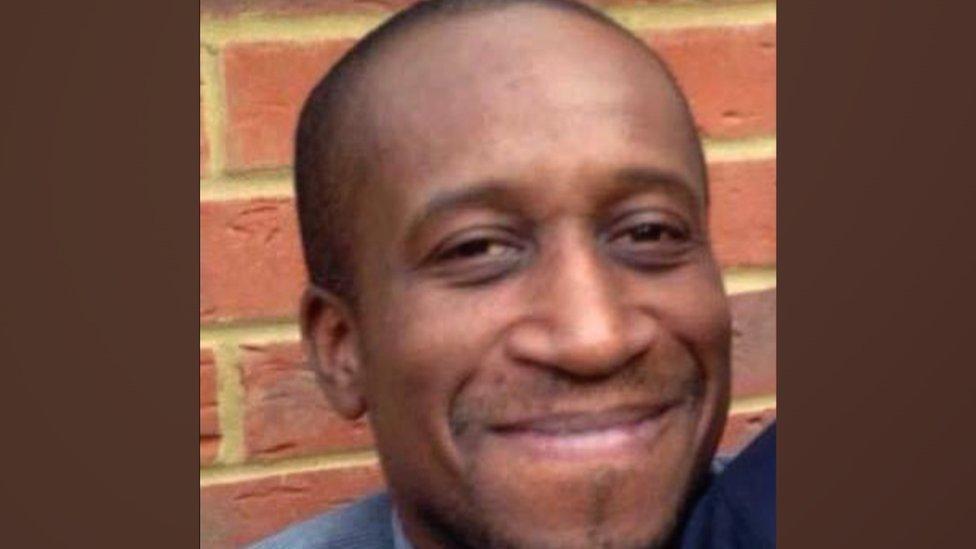Thames Valley Police apologises over man's heroin death in cell
- Published

Leroy Junior Medford was a father of eight and had eight siblings
A police force has apologised to the family of a man who died in custody after taking heroin in his cell.
Officers at a police station in Reading failed to find the drugs Leroy Junior Medford, 43, had hidden.
In a letter to his family, Thames Valley Police's Deputy Chief Constable Jason Hogg described his death in April 2017 as tragic and avoidable.
He also acknowledged the force breached Mr Medford's human rights and those of his family.
Mr Hogg wrote that Thames Valley Police apologised both for this and the "grief and distress that this has caused Junior's children and siblings".
Mr Medford, who was known to his family as Junior, was arrested on suspicion of assault and taken to Loddon Valley police station in Berkshire.
Officers were told he had concealed drugs inside his body.
He was strip-searched and taken to hospital for a scan but nothing was found. There was a third search when he returned to the police station.
'Left him to die'
In 2019, an inquest heard how two officers were required to observe him constantly in his cell but that they were not aware this meant one of them should be within the cell. They interpreted it as observing Mr Medford from the cell door.
CCTV showed him removing a package from inside his trousers and swallowing it. The officers did not witness the act.
The heroin he ingested proved fatal and he later collapsed and died. Mr Medford was a father of eight and had eight siblings.
His sister Marilyn Medford-Hawkins told the BBC there was a feeling of sadness rather than elation at the police apology.
"It's been absolutely devastating for the family," she said, adding: "It's affected my health. The people that were supposed to look after Junior neglected him. They left him to die."

Mr Medford (front left) had eight siblings, including sister Marilyn Medford-Hawkins (front right)
At the inquest, the coroner said the case raised concerns about police training and she called for a national review of the delivery of training to police officers across the country.
The National Police Chiefs' Council said the coroner's comments were shared with all chief constables who are individually responsible for training in their forces.
Thames Valley Police said it would always seek to learn from serious incidents and that changes were made to how officers were briefed on observing detainees and the procedure to take if someone was believed to have drugs on them.
In his letter to the family, Mr Hogg acknowledged there was a failure to comply with procedures, adding: "While we appreciate that no words will heal the pain of Junior's death, we hope that this letter of apology may offer you a measure of comfort."
Rachel Harger, the family's lawyer, said: "Independent medical expert evidence obtained during the inquest was unequivocal that, had there been earlier medical intervention, Junior would have survived.
"The reason he did not have this intervention was a direct consequence of Thames Valley Police officers' failures yet it has taken over five years to publicly acknowledge that Junior's death was avoidable and to apologise to Junior's family for these failures."
Following Mr Medford's death, an investigation by the police watchdog found two constables had a case to answer for misconduct.
The case against one was proven and he was given a written warning. The second officer retired before misconduct proceedings could be held.

Follow BBC South on Facebook, external, Twitter, external, or Instagram, external. Send your story ideas to south.newsonline@bbc.co.uk, external.
Related topics
- Published26 June 2019

- Published20 June 2019

- Published10 June 2019
